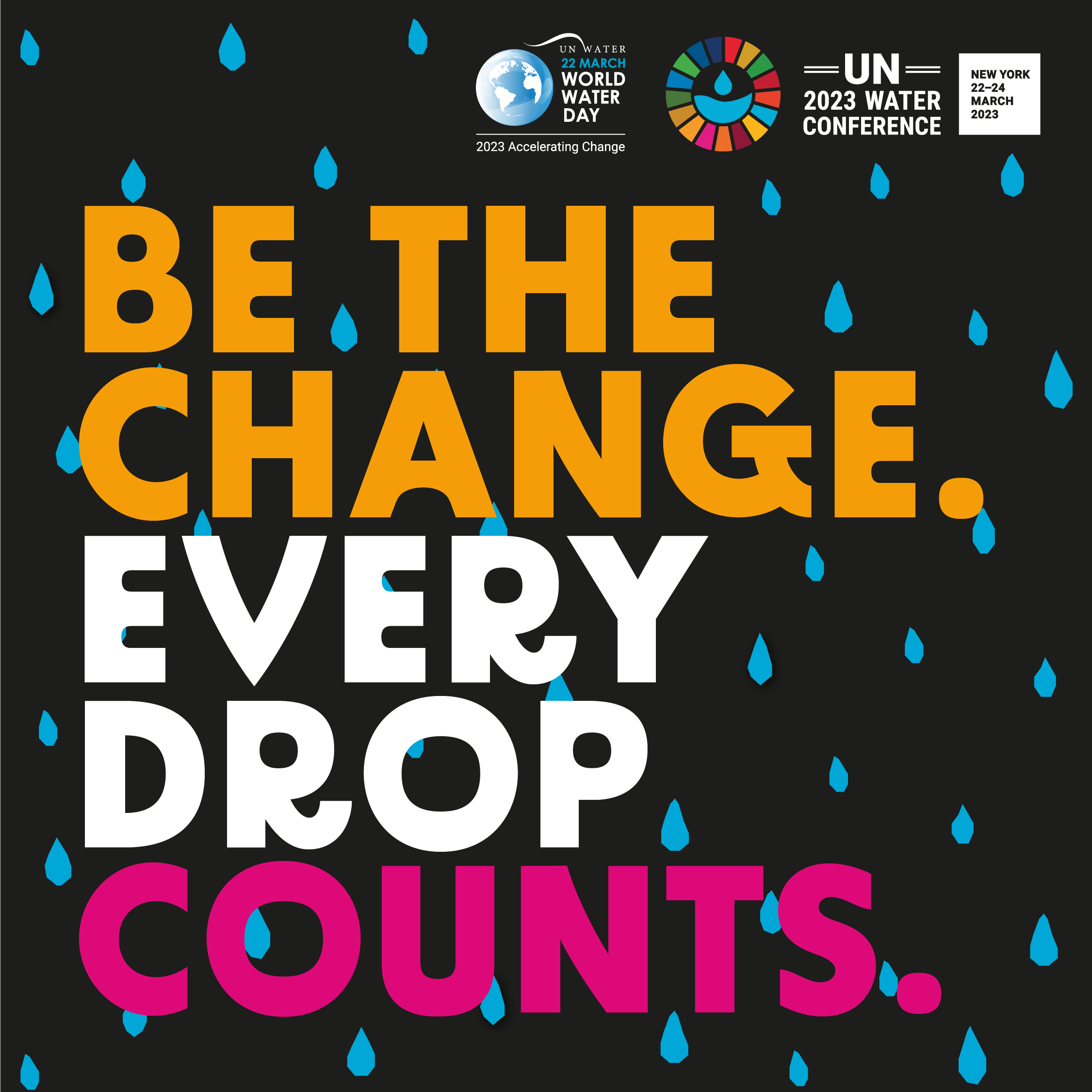“Behind every boil water advisory is a grandmother that is too old to fetch water, a mother that cannot afford bottled water, a child that does not know what it is to have clean water. The work I am doing is not for me, but for my community, and for my grandmother Josephine Mandamin. The work I am doing is for my descendant and the future.” – Autumn Peltier, Chief Water Commissioner and Water Walker
(via ONWA)
What is World Water Day?
World Water Day is an opportunity to raise awareness of the ongoing need for access to safe water supplies and ignite accelerated action: “Dysfunction throughout the water cycle is undermining progress on all major global issues, from health to hunger, gender equality to jobs, education to industry, disasters to peace.” (UN Water)
Water and Gender (UN Water):
Without safely managed water, sanitation and hygiene (WASH) services, women and girls are more vulnerable to abuse, attack and ill-health, affecting their ability to study, work and live in dignity.
Improvements to WASH at home, school, work and in public spaces support gender equity. Women and girls must play a central role in designing and implementing solutions, so that services respond to their specific needs.
- Women and girls usually have the responsibility of fetching water
- For women and girls, sanitation is about personal safety
- Women and girls have specific hygiene needs
- Lack of safely managed water and sanitation is an equality issue
- WASH must be seen through a gender lens
First Nations’ Drinking Water Crisis:
The lack of clean, safe drinking water in First Nations is one of the greatest violations of the UN-recognized human rights to water and sanitation. (The Council of Canadians)
Despite Canada’s global status as a developed country, there are still nearly 30 long-term boil water advisories on reserves, along with a move toward privatization of water by the Liberal government, rather than Indigenous-led, community-based initiatives to address it (The Council of Canadians).
- Lack of Clean Drinking Water in Indigenous communities and Impacts of unsafe drinking water on Indigenous reserves (The Indigenous Foundation)
- Ontario First Nation hires outside firm to investigate 28-year boil water advisory (CBC News)
- Reconciling Promises and Reality: Clean Drinking Water for First Nations (David Suzuki Foundation)
- Make it Safe: Canada’s Obligation to End the First Nations Water Crisis (Human Rights Watch)
- Source Water Protection in Indigenous Communities, Presentation to the Chiefs Of Ontario in Thunder Bay (Canadian Environmental Law Association)
- Water is Life: The fatal links between water infrastructure, COVID-19, and First Nations in Canada (Yellowhead Institute)
Water Walkers:
Water Walker Josephine Mandamin (1942-2019), Anishnaabe grandmother and founder of the Mother Earth Water Walk movement, walked more than 17,000 kilometers to raise awareness of the sacredness of water and the need to conserve and protect it:
“I will go to any lengths to and direction to carry the water to the people,” Mandamin has said. “As women, we are carriers of the water. We carry life for the people. So when we carry that water, we are telling people that we will go any lengths for the water. We’ll probably even give our lives for the water if we have to. We may at some point have to die for the water, and we don’t want that.”
from “Grandmother receives Ontario award for taking care of the water” (Anishinabek Nation)
Josephine Mandamin’s great niece Autumn Peltier, Indigenous rights activist, water protector and Chief Water Commissioner for the Anishinabek Nation, carries on her work:
- Autumn Peltier: a long walk for First Nations’ water rights (CIWEM)
- Canadian teen tells UN ‘warrior up’ to protect water (CBC News)
- Water protection and youth activism with Autumn Peltier (Canadian Geographic)
Actions + Resources:
- Adopt a City Storm Drain (EcoSuperior, Thunder Bay)
- Call on the federal government (Trudeau, Hadju, Miller) to fulfill their promise made in 2015 to put an end to all long-term Drinking Water Advisories in all First Nations
- The Lazy Person’s Guide to Saving Water (United Nations)
- How Students and Teachers can take action for clean water in First Nations (Council of Canadians)
- Legacy of former Anishinabek Nation Chief Water Commissioner Josephine Mandamin honoured in Pickering (Anishinabek News)
- Protecting Lake Superior with LaMPs (EcoSuperior)
- Protecting Water, Protecting Life (ONWA)
- Responsibilities for drinking water in First Nations communities (Indigenous Services Canada)
- Traditional Knowledge: Considerations for Protecting Water in Ontario (Deborah McGregor, 2012, The International Indigenous Policy Journal)
- Use the City of Thunder Bay Water Bar for your outdoor community events (EcoSuperior)
- UN 2023 Water Conference – March 22-24, New York
- Watch The Water Walker on Crave



Comments are closed